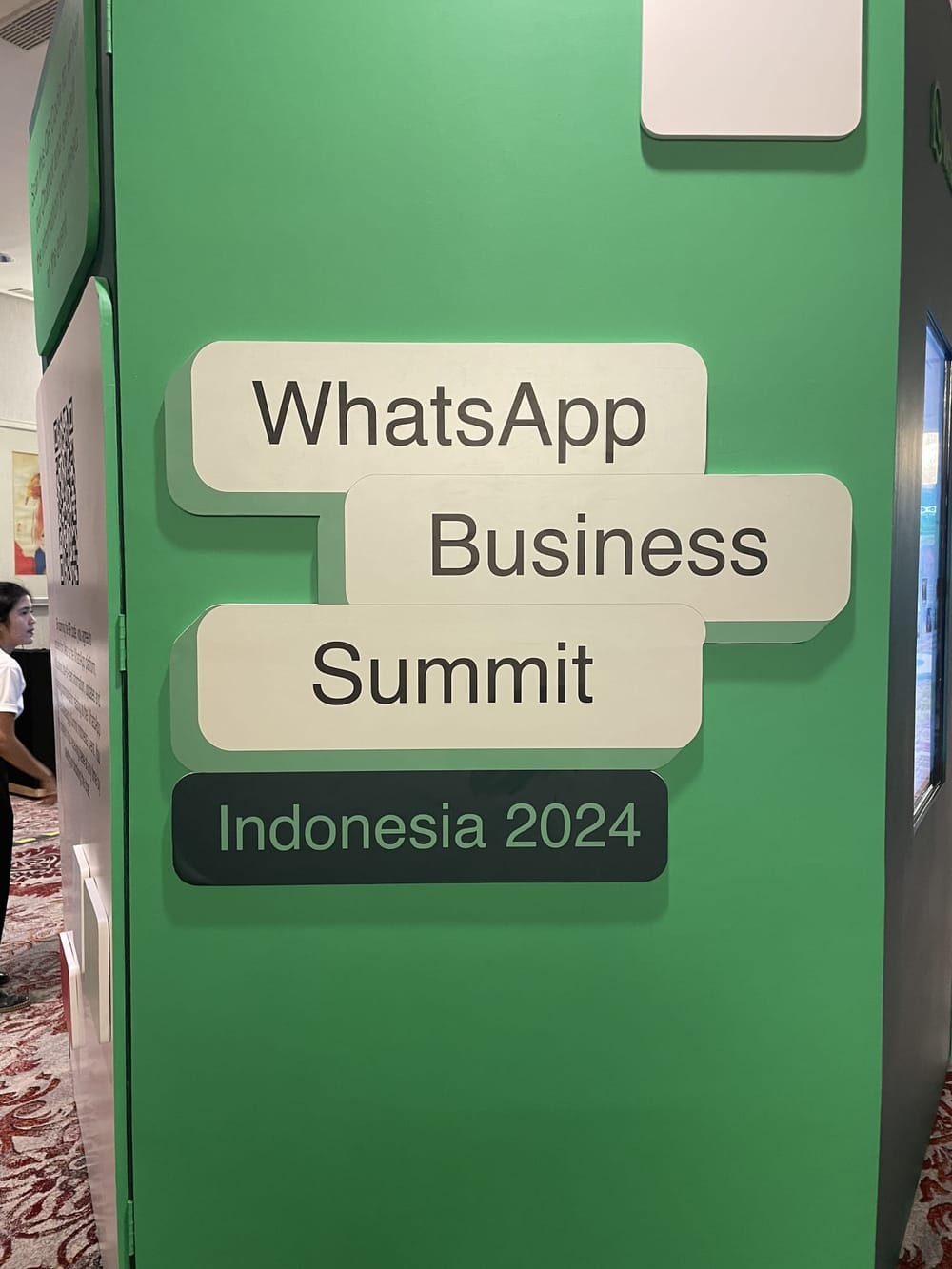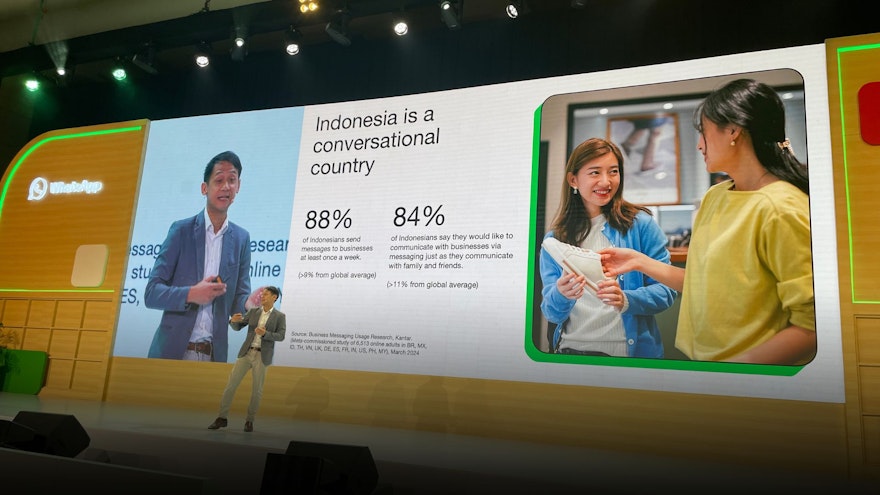On August 22, 2024, YOBO had the privilege of being invited by Meta Indonesia to participate in the WhatsApp Business Summit 2024. This event was a significant gathering of industry leaders, digital marketers, and business innovators, all keen to explore the evolving role of WhatsApp in enhancing customer engagement and loyalty.

During the summit, numerous insights and statistics were shared, emphasizing the importance of WhatsApp as a critical tool for businesses to connect with customers in Indonesia. Here’s a deeper dive into the key insights and why businesses should consider WhatsApp for their loyalty programs.
Indonesia: A WhatsApp Powerhouse

One of the central themes of the summit was the growing prominence of WhatsApp in Indonesia. Indonesia ranks as one of the countries with the highest number of WhatsApp users globally. The platform has become deeply ingrained in the daily communication habits of Indonesians, used not only for personal interactions but also as a channel for business communication.
A surprising statistic revealed during the event is that 84% of Indonesian customers enjoy exchanging messages with brands as much as they do with friends and family. This highlights a cultural shift where customers expect brands to communicate in a more friendly and approachable manner, similar to how they interact with their close circles. For businesses, this presents a tremendous opportunity to meet customers where they are most comfortable and create a more relaxed and open dialogue.
Why Businesses Should Switch to WhatsApp for Loyalty Programs
The summit also underscored the reasons why businesses should leverage WhatsApp for their loyalty programs. Here are three key reasons that were discussed in detail:
1. Simplified Communication
A significant 89% of customers believe that messaging apps like WhatsApp offer a simpler and more user-friendly way to communicate with brands. Unlike traditional methods such as email or phone calls, WhatsApp allows for instant communication, with no need for customers to navigate through multiple steps. This simplicity is particularly appealing in today's fast-paced world, where convenience is often a deciding factor in a customer's decision to engage with a brand.
For businesses, this means that integrating WhatsApp into their communication strategy can remove barriers between them and their customers. Whether it's answering product inquiries, providing quick customer support, or sending out updates, WhatsApp serves as a direct line of communication that can be managed efficiently.
2. Creating a Personal Experience
One of the reasons customers prefer using WhatsApp is its ability to create a more personal connection. About 80% of customers feel that chatting with businesses through messaging apps provides a more personal experience compared to other forms of communication. This perception of personalization is crucial, as customers are more likely to feel valued when businesses address them directly and cater to their specific needs.

Personalization in messaging could mean sending tailored promotions based on purchase history, offering special rewards on a customer’s birthday, or simply remembering their preferences. These small gestures go a long way in building a positive brand image and fostering long-term loyalty.
3. Building Trust Through Direct Communication
The summit highlighted that 83% of customers trust businesses more when they can communicate with them via a messaging app like WhatsApp. This trust stems from the direct, two-way communication that WhatsApp facilitates, allowing customers to receive timely responses and real-time updates. Customers appreciate the transparency and accessibility that comes with chatting directly with businesses, especially when they can address concerns or ask questions without delays.
For businesses looking to cultivate trust, integrating WhatsApp is a game-changer. It allows for transparent communication, where customers feel heard and valued. This can be particularly impactful in service-based industries, where customer feedback and interaction play a significant role in shaping the overall experience.
Well-Known Brands That Are Leveraging WhatsApp for an Effective Communication Strategies
During the summit, several examples were shared of brands that have successfully incorporated WhatsApp into their customer engagement strategies. These include well-known names like Paragon, Kopi Kenangan, Indosat Ooredoo, and various national banks. Each of these brands has leveraged WhatsApp not only for customer support but also as a part of their loyalty programs, offering a more streamlined way for customers to engage with their services.
WhatsApp and the Future of Loyalty
For businesses aiming to enhance their loyalty programs, it’s time to consider the integration of WhatsApp. By providing a more personalized and seamless customer experience, businesses can differentiate themselves in a crowded market and build lasting relationships with their customers. With platforms like YOBO making it easier to adopt WhatsApp for loyalty programs, the potential for growth and customer retention is limitless.
The shift towards messaging apps is more than just a trend—it represents the future of customer engagement in Indonesia and beyond. Businesses that embrace this change will not only stay relevant but thrive in an increasingly digital landscape.
